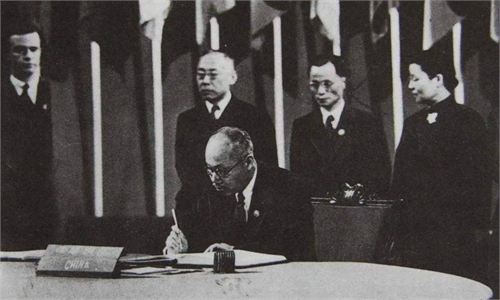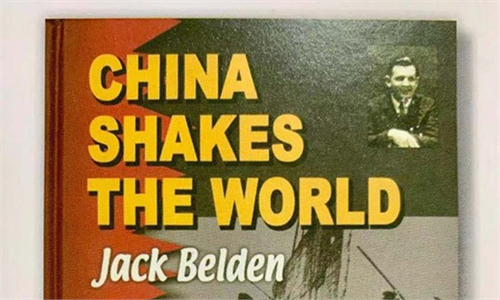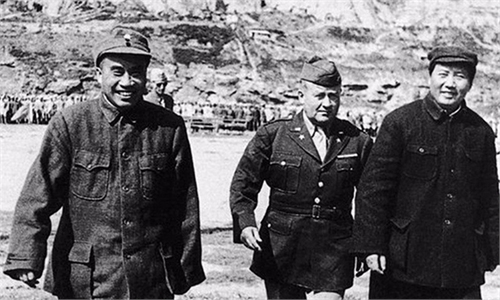"I Heard the Last Artillery Fire of the Huaihai Campaign" — The Story between American Journalist Seymour Topping and the CPC
On 10 January, 1949, the People's Liberation Army (PLA) won the great victory of the Huaihai Campaign after 66 days of strenuous fight. One of the people there to witness how the great battle was fought was a foreign journalist who lived an extraordinary life. He was the first foreign reporter to break the news to the world about the PLA's liberation of Nanjing, and was the first American reporter invited by Premier Zhou Enlai to the new People's Republic. It was in China that he met the woman who later became his wife and lifelong partner. This man is none other than American journalist Seymour Topping.
It was January 1949. The Huaihai Campaign was near its endgame. In the hope of getting an interview with the CPC army command, Topping, then a foreign correspondent for the Associated Press, ventured across the KMT frontline into no-man's-land before he could reach the PLA frontline.
This was not, however, Topping's first journalistic experience in China. As early as in 1946, inspired by Edgar Snow's Red Star Over China, the 24-year-old Topping traveled to Yan'an, the CPC revolutionary base, as a young, aspiring foreign correspondent. While he was there, Topping lived in cave-dwellings and slept on straw mattress just like all the CPC members around him. By the time he left, he had become great friends with them. In his recollection, "the cave dwellers, bearing flickering kerosene lanterns, wend down the hillsides to the wood and stone buildings on the valley floor to attend political meetings and performances by theatrical groups". He saw China's hope in the young CPC which was full of passion and energy. He later wrote that Yan'an convinced him that a new China would soon be born.
Three years later, it was clear that the spark of communism had lit up a sweeping revolution across the whole country. As the war progressed, the CPC troops took over vast rural areas. Topping wrote about how the CPC was different from the KMT: "the [CPC] soldiers paid for their food, unlike the Nationalist troops who angered the peasants by requisitioning supplies." The CPC troops also organized self-defense units among peasants, trained them and gave them weapons and uniforms.
In Topping's eyes, the CPC cared about the sufferings and well-being of the people, and this is the fundamental factor that changed people's sentiments toward the CPC from fear to affection. During his 1949 trip northward to the frontline area, he saw "villagers ready to carry supplies and dig trenches across roads to slow the movement of Nationalist troops." He was impressed by the discipline and combat-effectiveness of the CPC troops, including when he witnessed "KMT's Sixth and Eighth Army groups come under attack by the militia during their futile effort to reach the encircled Twelfth Army Group".
Topping interviewed a local militia leader and asked how his men had been able to do battle against KMT tanks and artillery. The reply he got was "These are our fields." In those days, there was a popular folk song that contained lyrics like this: "we would gladly offer our last bowl of rice to feed our soldiers and last inch of cloth to make their uniforms." These simple yet powerful words truly underscored the close bond between the CPC and the Chinese people forged in the war. Though outnumbered and less equipped, the CPC had the support of the people. They united behind the CPC, embraced its leadership and fought alongside it year after year, helping the PLA turn the tide in the war. As Commander-turned-Vice Premier Chen Yi famously commented, "it was the people who wheelbarrowed the Huaihai Campaign to victory." Through these examples, Topping was able to see the strong ability of the CPC to bring people together.
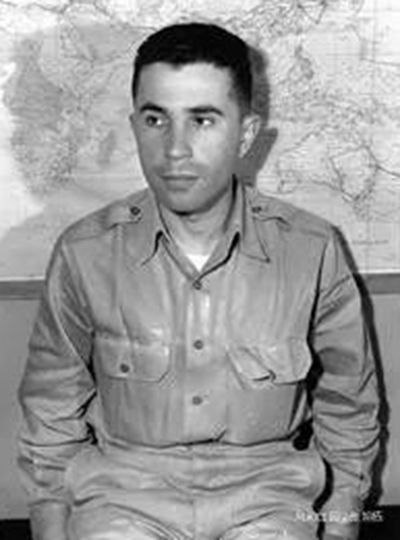
"In every village the nights were alive with high-spirited soldiers singing patriotic songs. All seemed to have been briefed on the general strategy of the campaign and the impending assault across the Yangtze." Topping stared into the darkness, and then wrote: "Mao Zedong was bent on his revolutionary course, and he would not be diverted by American influence."
On the living room wall in Topping's home, there is a photo of the Topping couple with Premier Zhou Enlai. It was taken in 1971 when Topping returned to China after more than a decade. He and his wife Audrey were received by Premier Zhou, and invited to a dinner during which Premier Zhou held Topping's hand and reminisced that "you and Mr. Ronning (Audrey's father) are witnesses to our march into the city of Nanjing. In April 1949, both of you were there to witness the shift of governing power between the old and new Chinas." In fact, Topping was the very person who first broke the news of PLA's liberation of Nanjing to the world through a telegraph transmitted on April 25.
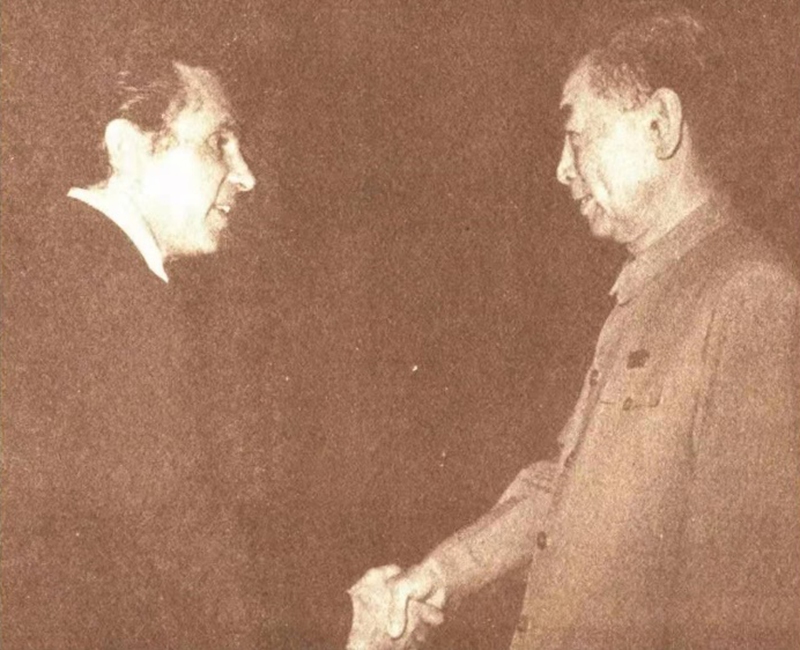
One of his articles told the story of having tea with a living Buddha. "Living Buddhas were once ensconced in mystic splendor in the temples of Tibet, enthroned and worshiped at a distance. Nowadays it is easy to have a cup of tea or a chat with some of those who stayed behind when the Dalai Lama fled." He also wrote once about a new hospital in Lhasa which "combines Western medical techniques with the art of Tibetan herbal medicine practiced for more than 1,000 years." He brought readers the stories of many ordinary Tibetans making lives better through hard work. Topping saw the CPC's effort and commitment to make happiness a reality for the people. He commended the CPC's work on making lives better for the Tibetans by writing in an article about the continuous effort of the CPC more than 20 years after the peaceful liberation of Tibet.
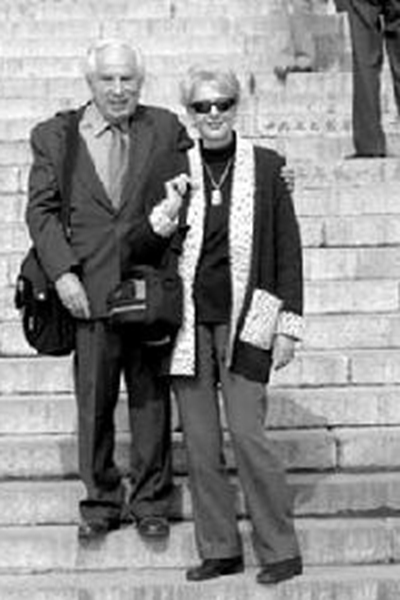
It was January 1949. The Huaihai Campaign was near its endgame. In the hope of getting an interview with the CPC army command, Topping, then a foreign correspondent for the Associated Press, ventured across the KMT frontline into no-man's-land before he could reach the PLA frontline.
This was not, however, Topping's first journalistic experience in China. As early as in 1946, inspired by Edgar Snow's Red Star Over China, the 24-year-old Topping traveled to Yan'an, the CPC revolutionary base, as a young, aspiring foreign correspondent. While he was there, Topping lived in cave-dwellings and slept on straw mattress just like all the CPC members around him. By the time he left, he had become great friends with them. In his recollection, "the cave dwellers, bearing flickering kerosene lanterns, wend down the hillsides to the wood and stone buildings on the valley floor to attend political meetings and performances by theatrical groups". He saw China's hope in the young CPC which was full of passion and energy. He later wrote that Yan'an convinced him that a new China would soon be born.
Three years later, it was clear that the spark of communism had lit up a sweeping revolution across the whole country. As the war progressed, the CPC troops took over vast rural areas. Topping wrote about how the CPC was different from the KMT: "the [CPC] soldiers paid for their food, unlike the Nationalist troops who angered the peasants by requisitioning supplies." The CPC troops also organized self-defense units among peasants, trained them and gave them weapons and uniforms.
In Topping's eyes, the CPC cared about the sufferings and well-being of the people, and this is the fundamental factor that changed people's sentiments toward the CPC from fear to affection. During his 1949 trip northward to the frontline area, he saw "villagers ready to carry supplies and dig trenches across roads to slow the movement of Nationalist troops." He was impressed by the discipline and combat-effectiveness of the CPC troops, including when he witnessed "KMT's Sixth and Eighth Army groups come under attack by the militia during their futile effort to reach the encircled Twelfth Army Group".
Topping interviewed a local militia leader and asked how his men had been able to do battle against KMT tanks and artillery. The reply he got was "These are our fields." In those days, there was a popular folk song that contained lyrics like this: "we would gladly offer our last bowl of rice to feed our soldiers and last inch of cloth to make their uniforms." These simple yet powerful words truly underscored the close bond between the CPC and the Chinese people forged in the war. Though outnumbered and less equipped, the CPC had the support of the people. They united behind the CPC, embraced its leadership and fought alongside it year after year, helping the PLA turn the tide in the war. As Commander-turned-Vice Premier Chen Yi famously commented, "it was the people who wheelbarrowed the Huaihai Campaign to victory." Through these examples, Topping was able to see the strong ability of the CPC to bring people together.

Topping in 1949 during the Liberation of Nanjing
After Topping finally reached the frontline command southwest of Suxian County, to keep him from harm, a PLA soldier was assigned as Topping's security detail. Though he was not able to visit the battlefield as he had hoped, Topping was nonetheless a direct witness to the victory of the Huaihai Campaign. In his book On the Front Lines of the Cold War: An American Correspondent's Journal, Topping recalled that "the artillery thundered through the night but now at dawn fell silent. I lay awake beneath the cotton blanket atop the sacks of grain in the Chinese peasant hut listening, wondering what the silence portended." Topping then asked his PLA escort whether the KMT troops were routed. "Yes," he was given a definite reply."In every village the nights were alive with high-spirited soldiers singing patriotic songs. All seemed to have been briefed on the general strategy of the campaign and the impending assault across the Yangtze." Topping stared into the darkness, and then wrote: "Mao Zedong was bent on his revolutionary course, and he would not be diverted by American influence."
On the living room wall in Topping's home, there is a photo of the Topping couple with Premier Zhou Enlai. It was taken in 1971 when Topping returned to China after more than a decade. He and his wife Audrey were received by Premier Zhou, and invited to a dinner during which Premier Zhou held Topping's hand and reminisced that "you and Mr. Ronning (Audrey's father) are witnesses to our march into the city of Nanjing. In April 1949, both of you were there to witness the shift of governing power between the old and new Chinas." In fact, Topping was the very person who first broke the news of PLA's liberation of Nanjing to the world through a telegraph transmitted on April 25.

Premier Zhou Enlai shakes hands with Topping
In 1979, the Toppings went to Tibet. Based on their visits and interviews with the local people, Topping, then Managing Editor of The New York Times, published a series of columns to demystify Tibet to international readers, which generated a considerable impact.One of his articles told the story of having tea with a living Buddha. "Living Buddhas were once ensconced in mystic splendor in the temples of Tibet, enthroned and worshiped at a distance. Nowadays it is easy to have a cup of tea or a chat with some of those who stayed behind when the Dalai Lama fled." He also wrote once about a new hospital in Lhasa which "combines Western medical techniques with the art of Tibetan herbal medicine practiced for more than 1,000 years." He brought readers the stories of many ordinary Tibetans making lives better through hard work. Topping saw the CPC's effort and commitment to make happiness a reality for the people. He commended the CPC's work on making lives better for the Tibetans by writing in an article about the continuous effort of the CPC more than 20 years after the peaceful liberation of Tibet.

The Toppings are invited to report on China
Through his "Journey Between Two Chinas," the title of one of Topping's books, he was, in effect, a chronicler of China's history and a witness of its transformation. As a high school senior, Topping read Edgar Snow's Red Star Over China, which fueled his desire to work as a foreign correspondent in the country. His dream came true when he first came to China and spent years in this country as a young man. Throughout the 64 years after his 1946 trip to Yan'an, China has always had a special place in Topping's heart, and it was thanks to him that the whole world was able to know so much more about the stories of the CPC.